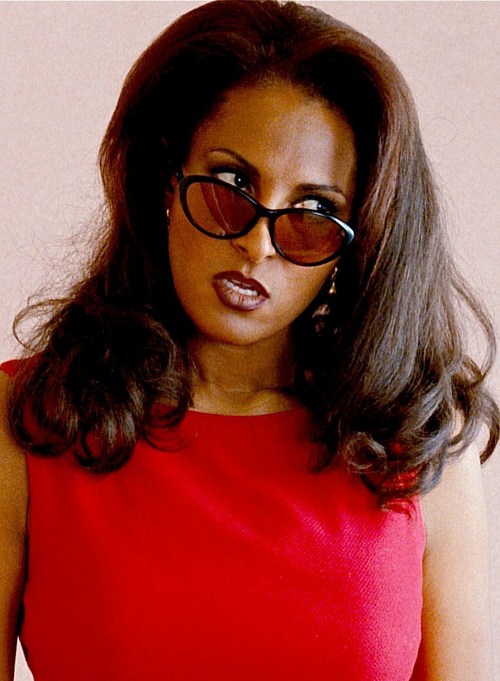I rewatched Jackie Brown last night, and googling around afterwards found this piece that argues that Brown is presented as a racial other. The author, Rachael Coates, points out that Pam Grier is associated throughout with blaxploitation music; that she uses AAVE when talking to Samuel Jackson’s Odell, and that the film is fascinated with her appearance, which is lingered on in various long shots. It also notes that the character Brown is based on from the novel is white.
It’s interesting, though, that the essay doesn’t point to the most obvious ways in which the film marks Brown as black — those instances where people in the film comment on the fact that she’s black. Odell tries to play on Max’s sympathy for a 44-year old black woman when he’s trying to get out of paying a deposit on the bond to get her out of prison. The cops who pick Jackie up and threaten her don’t reference her race explicitly, I don’t think, but when they talk about how few options she has, her status as a black woman in definitely hanging there, not quite spoken.
Why are these incidents left out of the discussion of the way that the film presents Jackie as racially Other (or, in less theoryish terms, as black?) The answer seems clear enough; these incidents suggest strongly that it is not the *film* which sees Jackie as racially other — or not just the film. Black people are marked in our society. Ignoring that is not actually ignoring it; it’s making a choice to treat black people as white — as in, say, the most recent Fantastic Four film, where there’s almost nothing in the film to let you know that anyone even knows that Johnny Storm is black.
There’s certainly some virtue in a vision of an egalitarian world. But, by definition, such a world can’t speak to issues of race. Jackie Brown isn’t explicitly about racial oppression, as some of Grier’s blaxploitation classics were. But Jackie’s plight, and her beauty, and her triumph, are all nonetheless recognized by the film as a specifically black plight, a specifically black beauty, and a specifically black triumph.
Pam Grier is a black icon. Were Tarantino to ignore or erase that — if he were to make a movie in which a white person could just as easily play Jackie Brown — would that be some sort of triumph of egalitarianism? Or would, instead, be a kind of cowardice, and even a kind of betrayal? Jackie Brown insists that a poor, middle-aged, defiantly black woman can be a movie star and a hero. As Coates acknowledges, “…the contemporary U.S. film industry rarely produces black women character films with the same sincerity and admiration as Tarantino does for Grier here.” I don’t really understand why you’d want to replace that with yet another film in which the director pretends he can’t see color.

